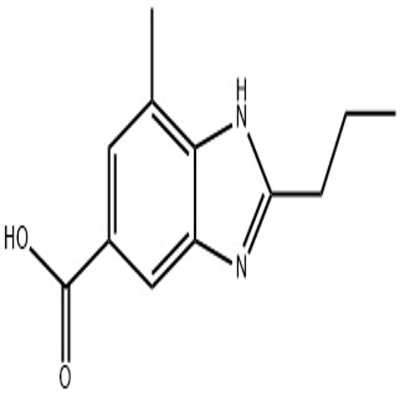-
Categories
-
Pharmaceutical Intermediates
-
Active Pharmaceutical Ingredients
-
Food Additives
- Industrial Coatings
- Agrochemicals
- Dyes and Pigments
- Surfactant
- Flavors and Fragrances
- Chemical Reagents
- Catalyst and Auxiliary
- Natural Products
- Inorganic Chemistry
-
Organic Chemistry
-
Biochemical Engineering
- Analytical Chemistry
-
Cosmetic Ingredient
- Water Treatment Chemical
-
Pharmaceutical Intermediates
Promotion
ECHEMI Mall
Wholesale
Weekly Price
Exhibition
News
-
Trade Service
4-(1-Piperazinyl)benzonitrile, commonly referred to as PBN, is a chemical compound that has a wide range of applications in the chemical industry.
PBN was first synthesized in 1906 by the German chemist Emil Fischer, and it has since become a valuable building block for the synthesis of many other chemicals.
One of the primary applications of PBN is as a precursor to other chemicals.
PBN can be nitrated to produce PBNNO2, which is used as an intermediate in the production of dyes, pharmaceuticals, and other chemicals.
PBN can also be acetylated to produce PBNAc, which is used as a building block for the synthesis of polymers and other materials.
Additionally, PBN can be halogenated to produce PBCl and PBBr, which are used as reagents in organic synthesis.
PBN is also used as a catalyst for a variety of chemical reactions.
For example, PBN can be used as a catalyst for the nitration of benzene and other aromatic compounds.
It is also used in the production of polyurethanes, where it acts as a hardening agent.
PBN is also an important component in the production of explosives.
PBN is used as a stabilizer in the production of nitroglycerin, a highly sensitive and unstable compound that is used in the production of dynamite and other explosives.
PBN helps to stabilize the nitroglycerin, making it easier to handle and use.
Another important application of PBN is in pharmaceuticals.
PBN is used as an intermediate in the production of a variety of medications, including antihistamines, anti-inflammatory drugs, and anti-cancer drugs.
PBN is also used as a starting material for the synthesis of other pharmaceuticals, such as antibiotics and anti-viral drugs.
In addition to its applications in the chemical industry, PBN has also found use in other fields.
For example, PBN is used in the production of ceramics, where it is added to the glaze to improve its properties.
PBN is also used in the production of textiles, where it is used as a finishing agent to improve the texture and appearance of the fabric.
In conclusion, 4-(1-Piperazinyl)benzonitrile, or PBN, is a versatile and important chemical compound that has a wide range of applications in the chemical industry.
From its use as a precursor to other chemicals, to its role as a catalyst and stabilizer in the production of explosives, PBN is a valuable building block for the production of many important chemicals and pharmaceuticals.
Its ability to undergo a variety of chemical reactions and its stability make it an ideal candidate for use in a wide range of applications.





![benzyl N-{2-[4-(4,4,5,5-tetramethyl-1,3,2-dioxaborolan-2-yl)phenyl]ethyl}carbamate](https://file.echemi.com/fileManage/upload/goodpicture/20210823/m20210823171124543.jpg)

